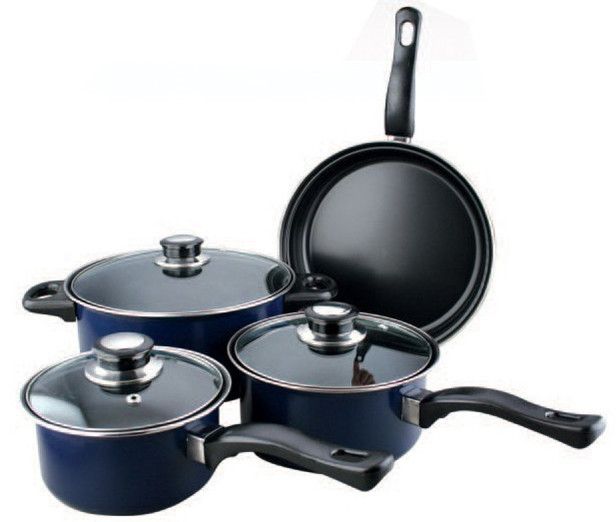What is the Best Material for Cookware?
Choosing the right cookware makes a huge difference in how your food will taste and how well you’re going to like cooking it. Different people want the best type of cookware for different things like health, every day use, certain types of cooking and other benefits based on different factors like how it conducts heat, how long it will last and how safe it is to use.

What Are the Common Cookware Materials?
Common materials for cookware include stainless steel, cast iron, aluminum, copper, and granite cookware. Each has its strengths and ideal uses:
- Stainless steel cookware is durable, non-reactive, and resistant to rust. It’s often combined with an aluminum core to improve heat distribution. It is perfect for everyday use due to its balance of durability and safety.
- Cast iron cookware is ideal for heat retention, making it perfect for searing or slow cooking. Pre-seasoned cast iron has natural non-stick properties, but it requires more maintenance
- Aluminum cookware heats quickly and evenly but often requires a non-stick coating to prevent reactions with acidic foods.
- Granite cookware (often a non-stick surface over a metal base) is lightweight, eco-friendly, and ideal for everyday use due to its easy maintenance.


What is the Best Type of Cookware Material?
There is no single “best” material as it depends on your cooking habits and preferences:
- For everyday use, stainless steel cookware is the most versatile. It is durable, safe, and works on various stovetops, including gas (LeeKnives).
- For those focused on health, ceramic cookware (specifically non-toxic options) and stainless steel are excellent choices as they don’t leach harmful chemicals into food (The Cookware Geek, Cookware Insider).
What is the Best Cookware Material for a Gas Stove?
For gas stoves, you want materials that can withstand rapid temperature changes and distribute heat evenly. Cast iron and clad stainless steel are top choices:
- Cast iron excels at heat retention and is ideal for slow-cooking and high-heat searing. However, it takes longer to heat up (Thegoodlife Designs, LeeKnives).
- Clad stainless steel with an aluminum or copper core is also great for gas stoves because it heats evenly and adjusts well to temperature changes (LeeKnives).
What is the Healthiest Material for Cookware?
The healthiest cookware materials are those that don’t leach toxic chemicals into your food. Stainless steel and cast iron are some of the safest choices. Ceramic cookware is another great option as it’s non-reactive and free from harmful chemicals like PTFE or PFOA (The Cookware Geek).
Is Granite Cookware Safe?
Granite cookware is considered safe, especially when it’s PFOA and PFOS-free. It has a non-stick coating that allows for less oil during cooking, promoting healthier meals. However, it requires careful maintenance to avoid scratching the non-stick surface (Cookware Insider).
Conclusion
When selecting cookware, there isn’t a one-size-fits-all answer. For everyday versatility, stainless steel is a great option. For health-conscious cooks, ceramic and cast iron are excellent choices, and for gas stoves, clad stainless steel and cast iron are top picks. Always consider your cooking style and health priorities when choosing the best cookware for your kitchen. This version includes relevant links that enhance credibility while providing readers with additional resources on various types of cookware materials.






